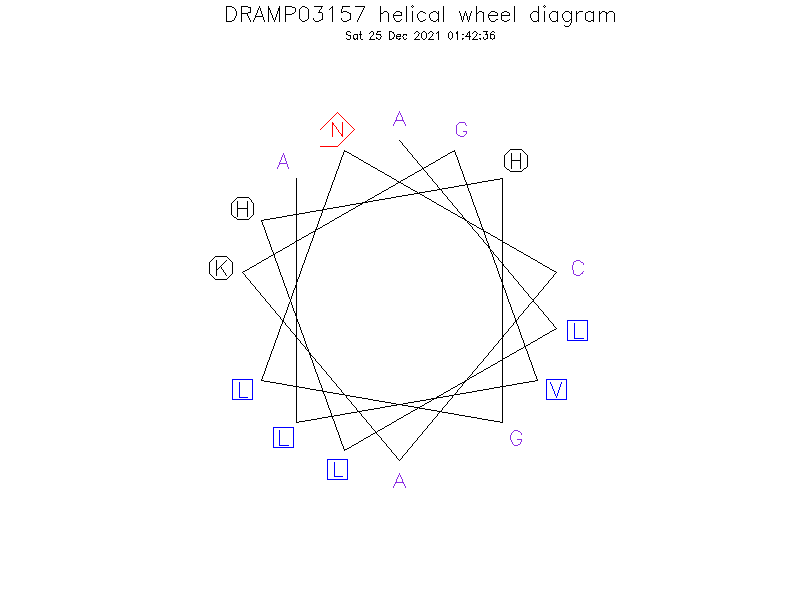General Information
-
DRAMP ID
- DRAMP03157
-
Peptide Name
- Halocidin subunit B
-
Source
- Halocynthia aurantium (Sea peach)
-
Family
- Not found
-
Gene
- Not found
-
Sequence
- ALLHHGLNCAKGVLA
-
Sequence Length
- 15
-
UniProt Entry
- P83706
-
Protein Existence
- Protein level
Activity Information
-
Biological Activity
- Antimicrobial, Antibacterial, Anti-Gram+, Anti-Gram-
-
Target Organism
-
- Gram-positive bacterium: Staphylococcus aureus;
- Gram-negative bacterium: Pseudomonas aeruginosa.
-
Hemolytic Activity
-
- No hemolysis information or data found in the reference(s) presented in this entry
-
Cytotoxicity
-
- Not included yet
-
Binding Target
- Not found
Structure Information
-
Linear/Cyclic
- Not included yet
-
N-terminal Modification
- Not included yet
-
C-terminal Modification
- Not included yet
-
Nonterminal Modifications and Unusual Amino Acids
- Not included yet
-
Stereochemistry
- Not included yet
-
Structure
- Not found
-
Structure Description
- Not found
-
Helical Wheel Diagram
-
PDB ID
- None
-
Predicted Structure
- There is no predicted structure for DRAMP03157.
Physicochemical Information
-
Formula
- C67H113N21O17S
Absent Amino Acids
- DEFIMPQRSTWY
Common Amino Acids
- L
Mass
- 1516.82
PI
- 8.28
Basic Residues
- 3
Acidic Residues
- 0
Hydrophobic Residues
- 8
Net Charge
- +3
-
Boman Index
- 10.8
Hydrophobicity
- 0.847
Aliphatic Index
- 143.33
Half Life
-
- Mammalian:4.4 hour
- Yeast:>20 hour
- E.coli:>10 hour
Extinction Coefficient Cystines
- 0
Absorbance 280nm
- 0
Polar Residues
- 4
DRAMP03157
Comments Information
Function
- Has antimicrobial activity, possibly by attacking the bacterial cell membrane.
Literature Information
- ·Literature 1
-
Title
- Halocidin: a new antimicrobial peptide from hemocytes of the solitary tunicate, Halocynthia aurantium.
-
Pubmed ID
- 12067731
-
Reference
- FEBS Lett. 2002 Jun 19;521(1-3):81-86.
-
Author
- Jang WS, Kim KN, Lee YS, Nam MH, Lee IH.

